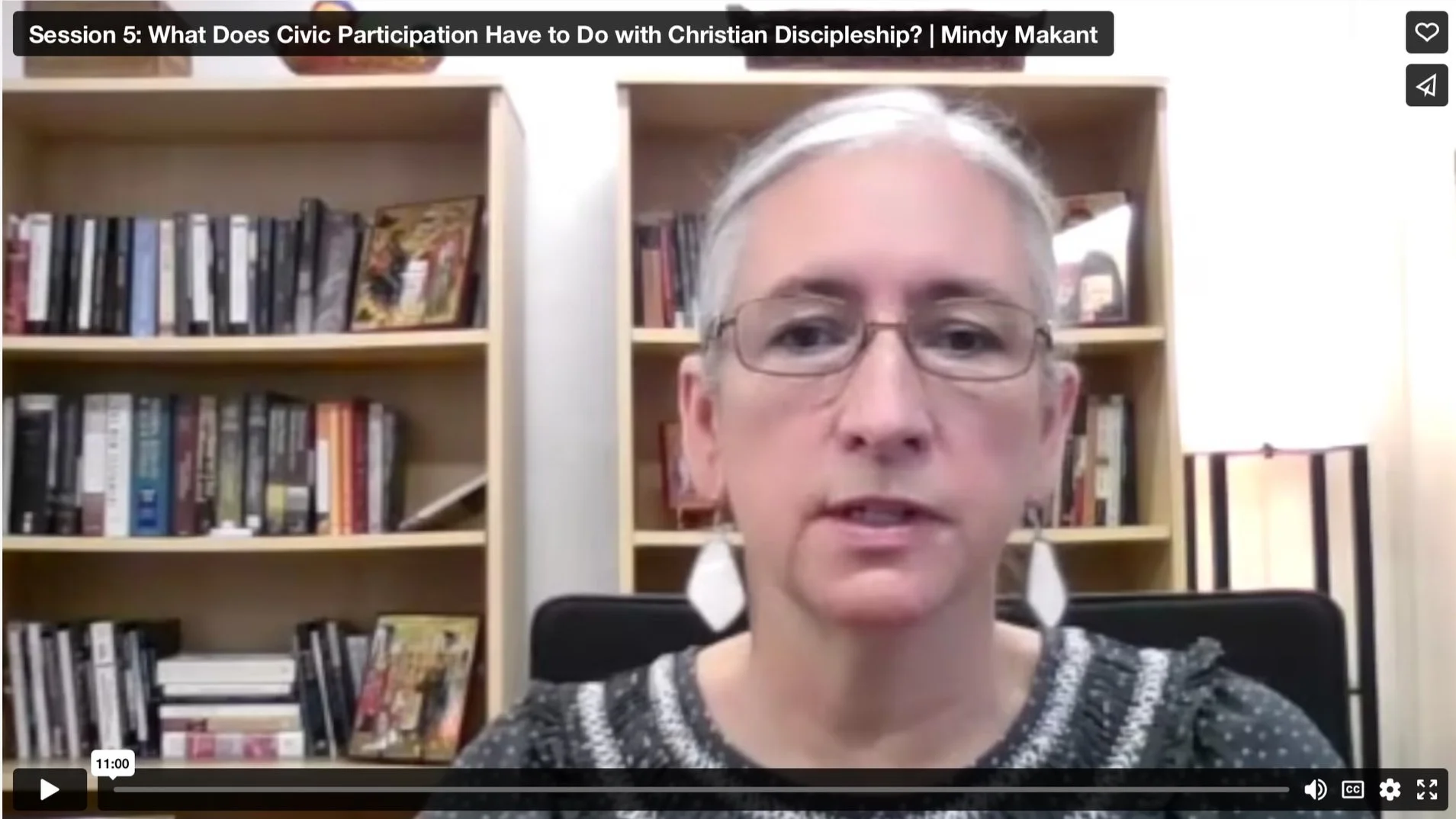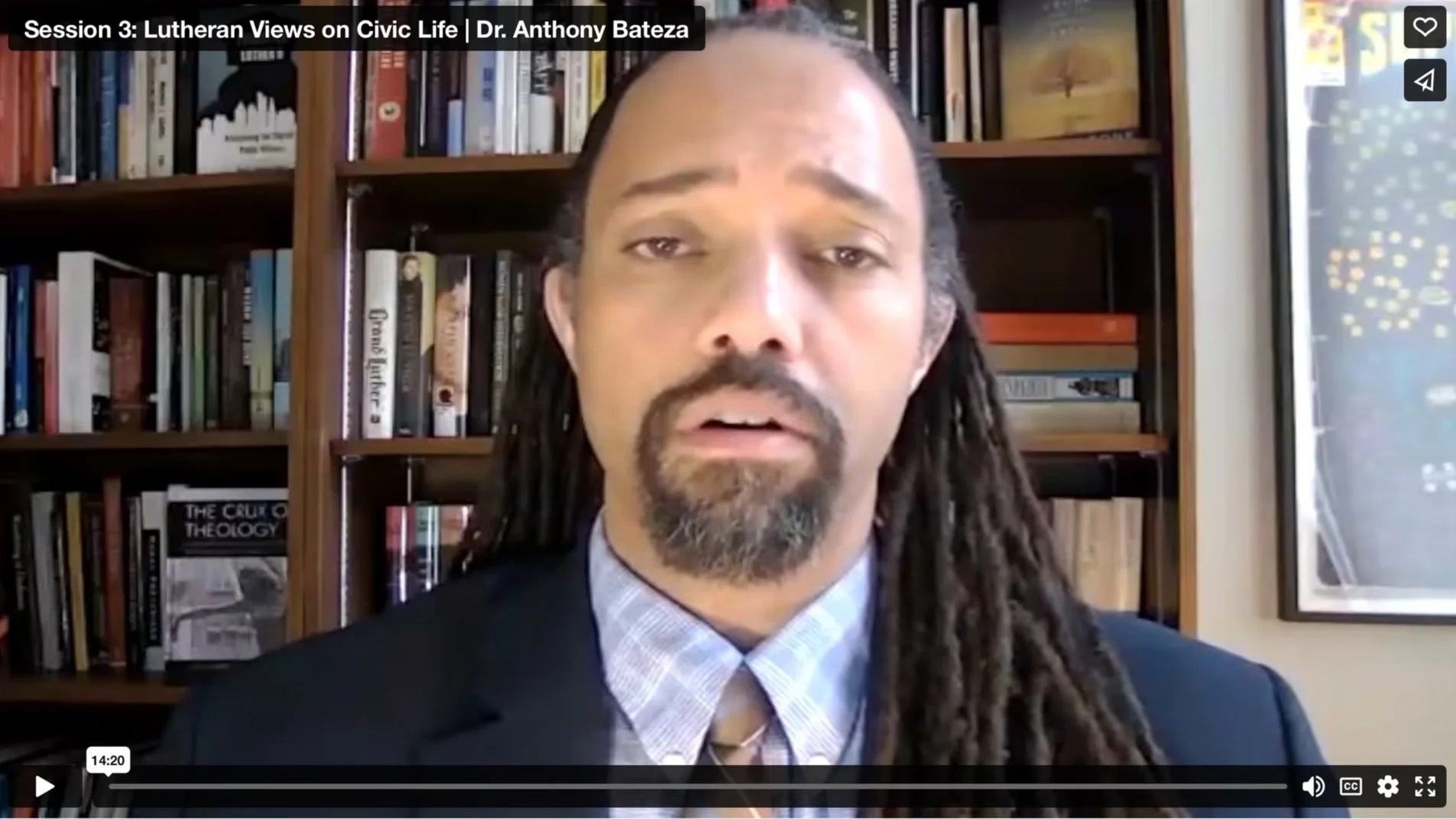In response to the turbulent times we face and the heartbreaking events that have transpired recently, we are creating this special section on our site devoted to promoting understanding, dialogue, and unity. Inspired the response to Bishop Hutterer’s letter Creating Space for Conversations, we believe that our shared faith calls us to be peacemakers, bridge builders, and empathetic listeners.
This page will serve as a hub for resources, tools, and materials that can help you create spaces for open, compassionate, and respectful conversation. We will continually compile and add insightful blog posts, guides, and other resources that support the understanding and reconciliation our communities need now more than ever.
Whether you are seeking guidance on how to approach sensitive topics, or looking for ways to connect with others across divides, this page will be your go-to source. Have an idea for this page? Let us know! Let's work together, following Christ's example, to embrace love, justice, and the unity that binds us all.
Posts from our Blog
View posts below from our blog regarding creating space for conversations, or view all posts here.
Join the ELCA’s online workshop series through October to delve into how our faith informs our actions and voting on critical social issues. The final discussion is October 22: Freed in Christ: Race, Ethnicity, and Culture with Dr. Richard Perry, emeritus faculty at the Lutheran School of Theology at Chicago.. View a PDF flyer and register now to engage deeply with our social teachings and lead community discussions.
The ELCA invites members to engage with a draft social statement on civic life and faith, reflecting our relationship with government as individuals and a church body. This statement, currently under review, offers guidance on church teaching and policies, serving as a vital tool for discernment on civic issues. Members can contribute feedback through an online survey or synod hearings until September 30, 2024. Post-feedback, the statement will be considered for official adoption at the 2025 ELCA Churchwide Assembly, potentially shaping the church's stance on civic engagement.
Join the ELCA’s online workshop series through October to delve into how our faith informs our actions and voting on critical social issues. September's focus is Faith, Sexism and Justice with Dr. Mary Streufert, Director of Gender Justice and Women’s Empowerment, and Heather Dean, Program Coordinator of Theological Discernment at the ELCA. View a PDF flyer and register now to engage deeply with our social teachings and lead community discussions.
United Church of Christ presents a Community Safety Training Series via Zoom on September 23 and 30, 5:00 - 7:00 pm. Register for Zoom info here.
How can congregations build an ecology of community safety that is rooted in care, investing in each other, believing in each other, and trusting each other and the rhythms and cycles around/within us? What community safety practices can we engage in now that also help us build the world we long for? Our experienced trainers will expand on our “Ecology of Community Safety” guide to offer practical skills, psycho-social care practices, planning tools, and analysis of current conditions.
Join the ELCA’s online workshop series through October to delve into how our faith informs our actions and voting on critical social issues. September's focus is Abortion with Dr. Caryn Riswold, Professor of Religion/McCoy Family Distinguished Chair in Lutheran Heritage and Mission at Wartburg College.View a PDF flyer and register now to engage deeply with our social teachings and lead community discussions. Click here to join this Sunday’s webinar.
September 10 New Date! Sun, Sep 8, 2024 at 7:00pm.: Abortion with Dr. Caryn Riswold, Professor of Religion/McCoy Family Distinguished Chair in Lutheran Heritage and Mission at Wartburg College.
The ELCA invites members to engage with a draft social statement on civic life and faith, reflecting our relationship with government as individuals and a church body. This statement, currently under review, offers guidance on church teaching and policies, serving as a vital tool for discernment on civic issues. Members can contribute feedback through an online survey or synod hearings until September 30, 2024. Post-feedback, the statement will be considered for official adoption at the 2025 ELCA Churchwide Assembly, potentially shaping the church's stance on civic engagement.
Explore the Grand Canyon Synod’s “Church and Society” page for essential resources tailored to help our congregations navigate the complexities of an election year. Featuring guides on political discussions, reflections on Christian nationalism, and updates on elections and voting rights, this page is your go-to source for fostering safe, informed, and united church communities. Visit now to access our comprehensive collection of articles and our “Creating Space for Conversations” series, ensuring our church remains a sanctuary of dialogue during these polarizing times.
Join us on September 5, 2024, at 10:15 am for the “Conversation about Congregational Safety” webinar, hosted by Bishop Hutterer and other synod leaders. This crucial event will address concerns about political violence and share resources from the FBI and the ELCA on Christian Nationalism. Congregational leaders are invited to participate and discuss community safety practices. Register now to be part of this essential conversation. Register here.
Join the ELCA’s online workshop series through October to delve into how our faith informs our actions and voting on critical social issues. August’s focus is Corporate Social Responsibility with Rev. Kaari Reierson. View a PDF flyer and register now to engage deeply with our social teachings and lead community discussions.
United Church of Christ presents a Community Safety Training Series via Zoom on August 19, September 9, 23, and 30, 5:00 - 7:00 pm. Register for Zoom info here.
How can congregations build an ecology of community safety that is rooted in care, investing in each other, believing in each other, and trusting each other and the rhythms and cycles around/within us? What community safety practices can we engage in now that also help us build the world we long for? Our experienced trainers will expand on our “Ecology of Community Safety” guide to offer practical skills, psycho-social care practices, planning tools, and analysis of current conditions.
Explore the complex relationship between faith and politics with Luther scholar, the Rev. Dr. Anthony Bateza in this enlightening episode of the Pivot Podcast.
Join LAMA’s new book club, “Book Time with LAMA,” starting Wednesday, August 21, 2024, at noon. Our first book, I Think You’re Wrong (But I’m Listening) by Sarah Stewart Holland and Beth Silvers, explores grace-filled political conversations. Monthly meetings will provide a safe space for discussions on social justice. Register now to join the conversation! Register for Book Time: ‘I Think You’re Wrong’
Washington State Senators Annette Cleveland and Ron Muzzall, both Lutherans, are advocating for civility in politics, inspired by their faith. Emphasizing grace, respect, and love, they aim to foster respectful dialogue across political divides. Their efforts align with the ELCA’s mission to promote healthy civic engagement, highlighted in recent social messages and draft statements. Read about their efforts in Living Lutheran.
Be sure to sign up for “Preaching in an Age of Polarization,” an online workshop on August 22, 2024, from 10am - 11:30 am MST/PDT. This session, led by Rev. Katie Langston of the Grand Canyon Synod, offers tools and insights for preaching with grace and humor in politically charged times. Engage in practical discussions, learn to address hot-button topics, and stay true to your Christian identity amid polarization. Register now at faithlead.org/polarization to secure your spot or access the post-event recording.
Join the ELCA’s online workshop series through October to delve into how our faith informs our actions and voting on critical social issues. Sessions include topics like corporate social responsibility, abortion, and climate crisis, led by knowledgeable speakers. View a PDF flyer and register now to engage deeply with our social teachings and lead community discussions.
As part of our Creating Space for Conversations series, we share a PDF of an article by Alex M. Aakre, “With Freedom’s Holy Light”: The Four Estates in American Christianity, from an issue of Word and World, Luther Seminary’s journal of theology.
The concept of an American civil religion has been widely identified and widely debated over the last sixty years. Many have come to reject this idea as an attempt to deify the American state and mix the allegiance due to God with that due to the nation. Yet, perhaps, rightly conceived, American civil religion can be useful as a way of understanding a Christian’s relation to the state and to the world. —Alex M. Aakre
Join the ELCA’s online workshop series from June to October to delve into how our faith informs our actions and voting on critical social issues. Sessions include topics like corporate social responsibility, abortion, and climate crisis, led by knowledgeable speakers. View a PDF flyer and register now to engage deeply with our social teachings and lead community discussions.
As part of our Creating Space for Conversations series, we share this video from the ELCA’s "Study Curriculum on Civic Life and Faith." Watch the video as a standalone resource, or explore the full set of the curriculum, including leader’s guides.
As part of our Creating Space for Conversations series, we share a PDF of an article by the Grand Canyon Synod’s very own Rev. Matthew Metevelis, “Where the Kingdoms Are Held Together”: Free Institutions and the American Church’s Political Vocation, an issue of Word and World, Luther Seminary’s journal of theology.
The United States, as any other nation, is considered a political entity that God uses as a means of providing life and happiness for all. The distinct nature of the American national system is heavily reliant on the virtue of its citizens, and Christians are called to engage in this work both as citizens of the nation and as members of God’s church. —Rev. Matthew Metevelis
As part of our Creating Space for Conversations series, we share this video from the ELCA’s "Study Curriculum on Civic Life and Faith." Watch the video as a standalone resource, or explore the full set of the curriculum, including leader’s guides.
Join the ELCA Coaching network for a crucial session on "Responding to Polarization" with Dr. Matt Cook, exploring strategies for handling political and cultural divides within congregations. We share this as another resource that can be used as part of our "Creating Space for Conversation" series, aimed at fostering understanding and unity.
As part of our Creating Space for Conversations series, we share a PDF of an article by Isak Tranvik, Uncivil Religion, from A Chosen Nation?, an issue of Word and World, Luther Seminary’s journal of theology.
Martin Luther King Jr. has entered the pantheon of American heroes, to be sure. But his legacy is contested, especially in his relation to the assumptions of American civil religion, the common ideals of the nation. Perhaps King pushed beyond these assumptions and challenged them to the core with his concerns for the poor and the radical nature of love. —Isak Tranvik
As part of our Creating Space for Conversations series, we share this video from the ELCA’s "Study Curriculum on Civic Life and Faith." Watch the video as a standalone resource, or explore the full set of the curriculum, including leader’s guides.
As part of our Creating Space for Conversations series, we share a PDF of an article by Darrell Jodock, The United States, a Chosen Nation?, from A Chosen Nation?, an issue of Word and World, Luther Seminary’s journal of theology.
There are at least two ways to think about the United States as a “chosen nation”: aspirational and exclusivistic. The danger of the latter, which has gained some currency, is that it assumes that America is (or was) already a divinely chosen nation whose actions are blessed by God, rather than a nation that has decided to hold itself to a higher (yet unrealized) standard. —Darrell Jodock
Explore constructive communication and empathy in challenging times with Joy J. Moore at the 'Leading in an Age of Contempt' workshop on March 21st, 9-10:30 am MST/PDT. Gain scriptural insights and practical tools for navigating societal discord and fostering unity within communities.
This interactive session offers a fresh perspective on current conflicts, exploring the diversity of worldviews and the courage required for leaders to engage constructively.
As part of our Creating Space for Conversations series, we share this video from the ELCA’s "Study Curriculum on Civic Life and Faith." Watch the video as a standalone resource, or explore the full set of the curriculum, including leader’s guides.
As part of our Creating Space for Conversations series, we share a PDF of an article by Miles Hopgood, Sacred Histories: Martin Luther on the Chosenness of Nations, from A Chosen Nation?, an issue of Word and World, Luther Seminary’s journal of theology.
In considering the idea of any nation as “chosen” of God, Martin Luther understands that such a relationship would have to be relational at its core, a relation between God and a group of people. But this relationship would be proclaimed by God and not something that individuals or groups could claim. Though Israel was chosen by God, this passed to the true, invisible church.—Miles Hopgood
As part of our Creating Space for Conversations series, we share this video from the ELCA’s "Study Curriculum on Civic Life and Faith." Watch the video as a standalone resource, or explore the full set of the curriculum, including leader’s guides.
In her poignant reflection, Autumn Byars, an ELCA Hunger Advocacy Fellow with the Lutheran Advocacy Ministry in Arizona, part of our Grand Canyon Synod, calls for a disruption in the exhausting cycles of the federal election process through the power of compassion. Byars challenges candidates and constituents alike to approach the political arena with understanding and grace, fostering solutions grounded in our shared humanity rather than divisive rhetoric.


























In the latest Crucible newsletter from the Church Leadership Institute, you can find a collection of episodes from their Spiritual Life and Leadership podcast that dig deep into the challenges of faith and politics:
Political Power and American Evangelicalism, with Tim Alberta
Tackling Toxic Polarization in Your Church, with Allen Hilton and Andrew Hanauer
Leading Your Church Through Political Division, with Allen Hilton
Grace-Filled Politics, with Aaron Schafer
How Your Church Can Respond to Immigration, with Karen Gonzalez
If you’re looking for some quicker insights, they also have shorter episodes from our “Quick Conversations for the Long Haul of Leadership” series with Tod Bolsinger:
Biblical Frameworks for a Polarized World
Exercising Power with Integrity
Harnessing Conflict for Positive Change